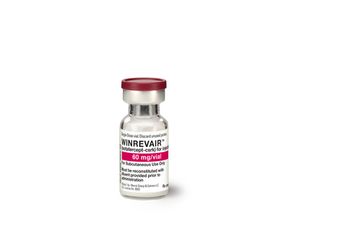
Gossamer Study Finds Seralutinib Has Long-Lasting Effects in PAH
Gossamer also reported encouraging preclinical data related to the combination of seralutinib and Winrevair.
Gossamer Bio Inc. has released new data showing its inhaled kinase inhibitor, seralutinib, has long-lasting effects on pulmonary arterial hypertension (PAH).
The new data from an open-label extension trial were unveiled last week at the
Gossamer presented three PAH posters at the conference. Two of the presentations dealt with the open-label extension of the
Seventy-four patients enrolled in the extension trial. By week 72, data were available for 55 of those participants. Of the 55 participants, 28 were treated with seralutinib for all 72 weeks, and 17 participants demonstrated a reduction in pulmonary vascular resistance of more than 15%.
The investigators said improvements in mean pulmonary arterial pressure and cardiac output likely contributed to the responses.
The authors also sought to demonstrate the long-term effects of seralutinib by tracking circulating biomarkers. An
The investigators found that, among those patients who began the trial in the seralutinib cohort and continued taking the therapy (23 patients), 169 of the 380 protein changes (45%) noted at week 24 continued at week 72. Among the 22 patients who crossed over from placebo, 152 of 380 protein changes (40%) were recapitulated at “nominal significance” after 48 weeks of seralutinib in the extension trial.
The investigators said they will prospectively validate the findings in the phase 3 PROSERA trial, which is currently enrolling patients.
Newsletter
Get the latest industry news, event updates, and more from Managed healthcare Executive.























